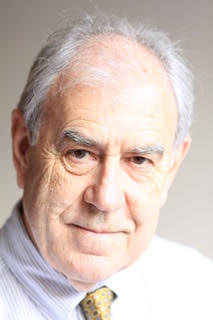RICHARD BUTLER. A Guessing Game
January 31, 2019
Trumps extraordinary public attack on the whole of the US intelligence community has fuelled a guessing game: the well established one which questions the relationship between intelligence assessments and policy development; and, a current one, which questions whether Trump has any interest in policy having a factual basis. Its anyones guess where the latter will lead.
Dan Coats, Director of US National Intelligence, delivered to the Congress yesterday, on behalf of the entire intelligence community, the annual omnibus assessment of threats to US national security. That assessment contradicted Trumps key, stated, understandings of the situation with respect to: Iran, ISIS, DPRK.
Trump then savaged the report and its authors. Theres no need to discuss what motivated him to do that. That they disagreed with him, was surely enough for them to be awarded such treatment.
What is useful is to consider the dynamics under which consideration of any such report labors or, especially given the recent track record, of the US intelligence Agencies, should be judged.
There are four main considerations:
-
It could prove to have included mistakes in data. It is human to err. But, errors can also be seeded by adversaries and, disinformation. This may not be known until later; a bit like retrieving the black box following an air crash. It is to be hoped that in such circumstances, the authors of the assessment would acknowledge the error and, correct it.
-
The Agencies may decide to reinforce the known prejudices, political predilections of the Executive. This may not involve outright fabrication, often more a question of nuance or bent. This tendency can be very much heightened by competition for recognition or praise, amongst the Agencies themselves.
-
The Agencies may accept a priori direction by the Executive, to produce specific outcomes. This is pernicious and vitiates the notion of objective intelligence assessment. This was done by Cheney and Rumsfeld, (the author of the memorable concept of: known unknowns), to provide a justification for the invasion of Iraq in 2003. Blair and company did the same in London.Our John Howard stated then, that he believed all of them, and then committed Australian troops to the invasion. A captains choice. Only years later, did he meekly aver that the intelligence was wrong, in such passive terms as to imply that it had simply dropped from a tree, at the time. He was an innocent bystander.
-
There is no guarantee that intelligence assessments will shape policy. Between the objective assessments of the facts, which intelligence is expected to provide; and, decisions on actions to be taken, lies political judgment. This is as it should be, especially in popular democracies.
Trumps extreme reaction to yesterdays US national intelligence assessment, indicates that he has not the remotest interest in facts challenging his prejudices. He prefers to take his guidance from Foxland, represenatives from which immediately denounced the national assessment, on national television.
It is important to recognize that accurate intelligence, especially that gathered during periods of great danger (the Bletchley Park code-breakers, the coast watchers in New Guinea, for example), have played vital roles. But, even in such periods, invaluable intelligence has sometimes been ignored. Stalin was warned of Operation Barbarossa the Nazi invasion of the USSR- but chose to ignore it, partly because it was clandestinely obtained.
A striking aspect of yesterdays US national intelligence assessment was the Agencies resistance to be misused, as they were, most flagrantly by the Bush administration. They were also not particularly disposed towards bellicosity. They seemed to imply the view that objectivity in assessments might contribute to the avoidance of wars of choice.
Trumps angry reaction gave further credence to the notion, now current, that his conduct has seen the bifurcation of the US into two policy entities: Trump and Twitter on the one hand and a coalition of: decently motivated, well educated public servants/think tankers/ academics, on the other.
Policy makers and managers in other countries and institutions who prefer to continue to have dealings with the US are tending to ignore the former and deal, very much, with the latter.
There is growing comment about the increasing isolation of Trump. And, heres, the guessing game; which many have entered.
On what issue, where and when, will he lash out, in rejection of that isolation; meaning in Trump vanity terms, that fewer and fewer people want to play with him, meet him, praise him. And, now the intelligence team has tried to take away some of his targets, well at least the Iranian one so cherished by Netanyahu and Prince Salman.
As the domestic legal and, increasingly political net, tightens around Trump; where will he find the great international distraction for everyones attention; beyond another summit farce with Kim Jong Un, who the intelligence community states has displayed no concrete interest in nuclear disarmament in Korea?
This incurred Trumps ire, though there are no facts to challenge the intelligence assessment.
Still, Trump assures us that he and Kim have forged a great personal connection.
As Trump would say: Huge.
Richard Butler AC former Head of the UN Special Commission to disarm Iraq, in which context he received regularly, US intelligence assessments.
